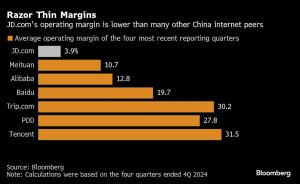EV maker Rivian Automotive (RIVN) delivered surprisingly strong Q1 2025 results last week, and yet, market participants chose to focus on management’s forward guidance, which has put the stock into rangebound mode. The company reported a significant revenue boost while its loss per share narrowed to $0.41, which was much better than the anticipated $0.76 loss and marks substantial progress toward profitability.
Perhaps most encouraging was Rivian’s second consecutive quarter of gross profit, reaching $206 million. This achievement triggered a major milestone: a $1 billion investment from Volkswagen (VWAGY) expected to close by June 30. With $8.5 billion in cash and short-term investments, Rivian appears well-positioned to weather near-term market instability.
Despite these positive developments, Rivian’s stock responded with a dip in trading the following day, only to reclaim that lost ground the day after, leaving the stock essentially flat. The market’s tepid reaction reflects concerns about the company’s adjusted guidance and broader industry challenges.
I am bullish on the stock over the long term, but caution that this one will require significant patience and intestinal fortitude, and is not for those who aren’t up for a long car trip along a bumpy (but scenic) highway.
Rivian reported a $22,600 year-over-year cost reduction per vehicle in Q1 2025, a significant improvement in manufacturing and supply chain efficiencies. Meanwhile, revenue from software and services surged 258% to $318 million. The combination of these is resulting in a growing high-margin business segment.
Strategic partnerships are also important in Rivian’s growth. Volkswagen’s investment is a significant milestone, and Rivian continues to benefit from a $6.6 billion U.S. Department of Energy loan to support its manufacturing expansion plans.
Despite this progress, the company still faces supply chain vulnerabilities (especially for battery materials and semiconductors), substantial cash burn (with negative free cash flow exceeding $5 billion over the past year), competition from both established automakers and other EV startups, and risks related to scaling production and launching new models.
The company’s planned one-month production halt later this year for retooling its Illinois facility to prepare for the R2 model launch will temporarily impact output, but it is necessary for long-term growth.

